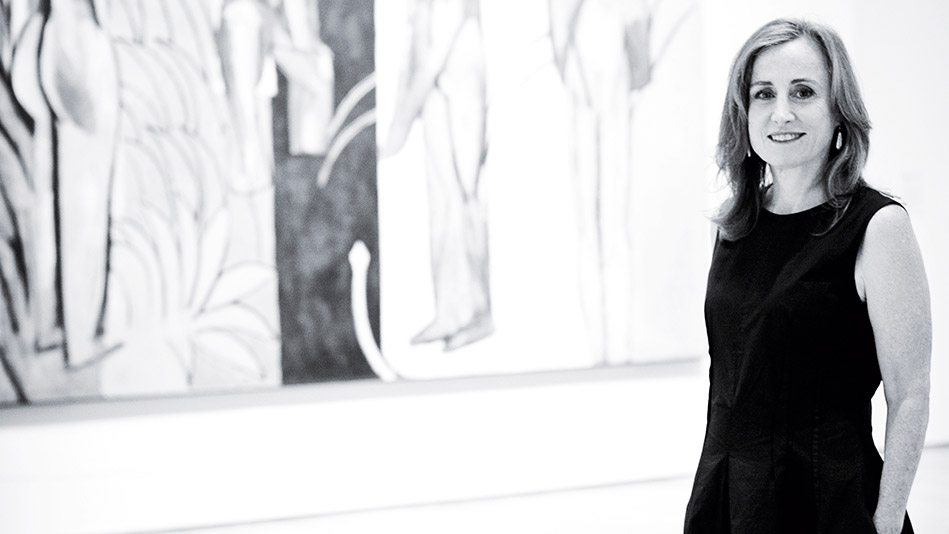Books That Are Better Than a Vacation
Mona Simpson supposes she should leave her hotel room while on vacation, but for her the best experiences are often found on the page.

Photo: Evan Sung/The New York Times/Redux
I've never really loved vacations. This isn't the kind of thing I like to admit, because it makes me sound like a prig or a workaholic. But actually, I just never learned how to take them. I grew up in a household short on money, so I don't have any memories of childhood trips. (We had bursts of adventure, but they came—as happiness does—unbidden.) We never went camping or to Hawaii or the Grand Canyon. Our long-distance summer trips usually involved funerals or other get-togethers with extended family. As a result, I grew up to be a very bad planner of fun.
In my 20s, I couldn't afford much fun anyway. I was trying to be a writer in New York City and needed all the financial help I could get, so I often sublet my apartment in the summertime and headed to an artists' colony—Yaddo, the upstate New York artists' residency Simpson visited, has hosted writers, visual and performance artists, composers, and filmmakers since 1900. Philip Roth wrote much of Portnoy's Complaint there—with a suitcase and a typewriter. My books I sent ahead. There, everything was set up for writing and reading: I had just a studio bed, a large desk and a good lamp, and lunch delivered in a basket at noon.
I spent long days on that bed, but I was really in 19th-century Russia, in the world of War and Peace. I would delight in Tolstoy's endless descriptions of elaborate dresses until dinnertime, when I forced myself to get up and join the others on the veranda for a meal, always wearing the same stained T-shirt. And I realized that if your life is books, your idea of a great summer is one when you can stay inside for hours—or days. Only then did I learn to love summer, my way.
Since those days, my family and I have skied, climbed Mount Katahdin, in Maine, and seen great European cities, but we always allow ourselves afternoons in between expeditions to read in a corner of a café. We like to stay in clean, bare hotel rooms and sometimes spend all day on the bed, with Paris on the other side of an open window. It's true that we could be "doing that at home." But I've found vacations to be overrated unless they're deepened by the interior pauses I can get only through reading.
Henry James once said that the two most beautiful words in the English language are summer afternoon. (F. Scott Fitzgerald also appears to have loved this season: "I had that familiar conviction that life was beginning over again with the summer," he wrote in The Great Gatsby.) Many of my happiest summer afternoons have been spent inside the ones he created. When Isabel Archer crosses the English lawn to meet her destiny, it thrills me to remember that James was inside his still sitting room, composing the scene, reveling in its imagined splendor.
Mona Simpson, author of Anywhere but Here, is a Guggenheim Fellow and Whiting award winner whose most recent novel is Steps (2017).
In my 20s, I couldn't afford much fun anyway. I was trying to be a writer in New York City and needed all the financial help I could get, so I often sublet my apartment in the summertime and headed to an artists' colony—Yaddo, the upstate New York artists' residency Simpson visited, has hosted writers, visual and performance artists, composers, and filmmakers since 1900. Philip Roth wrote much of Portnoy's Complaint there—with a suitcase and a typewriter. My books I sent ahead. There, everything was set up for writing and reading: I had just a studio bed, a large desk and a good lamp, and lunch delivered in a basket at noon.
I spent long days on that bed, but I was really in 19th-century Russia, in the world of War and Peace. I would delight in Tolstoy's endless descriptions of elaborate dresses until dinnertime, when I forced myself to get up and join the others on the veranda for a meal, always wearing the same stained T-shirt. And I realized that if your life is books, your idea of a great summer is one when you can stay inside for hours—or days. Only then did I learn to love summer, my way.
Since those days, my family and I have skied, climbed Mount Katahdin, in Maine, and seen great European cities, but we always allow ourselves afternoons in between expeditions to read in a corner of a café. We like to stay in clean, bare hotel rooms and sometimes spend all day on the bed, with Paris on the other side of an open window. It's true that we could be "doing that at home." But I've found vacations to be overrated unless they're deepened by the interior pauses I can get only through reading.
Henry James once said that the two most beautiful words in the English language are summer afternoon. (F. Scott Fitzgerald also appears to have loved this season: "I had that familiar conviction that life was beginning over again with the summer," he wrote in The Great Gatsby.) Many of my happiest summer afternoons have been spent inside the ones he created. When Isabel Archer crosses the English lawn to meet her destiny, it thrills me to remember that James was inside his still sitting room, composing the scene, reveling in its imagined splendor.
Mona Simpson, author of Anywhere but Here, is a Guggenheim Fellow and Whiting award winner whose most recent novel is Steps (2017).



